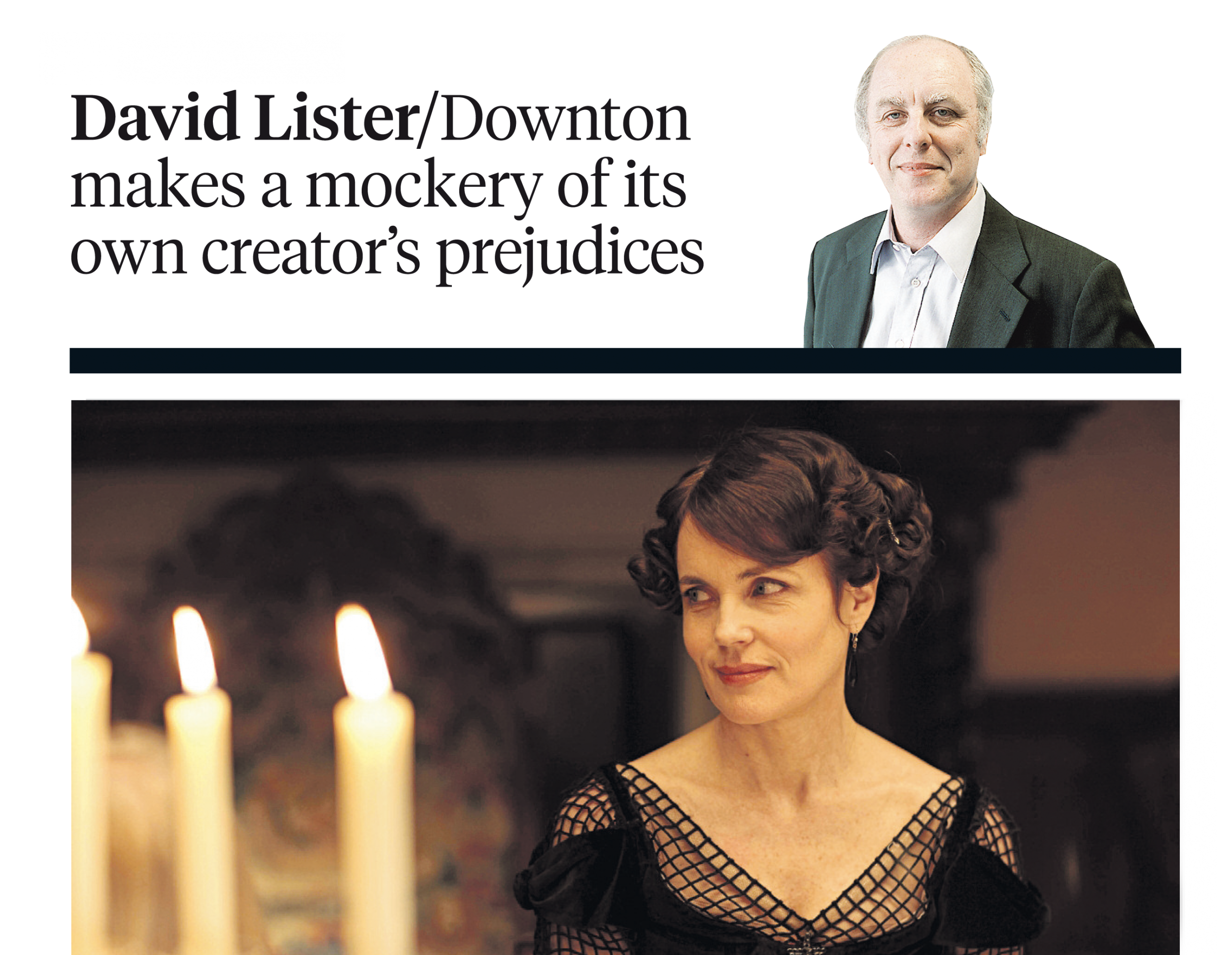Fellowes not so jolly good over American actors

Your support helps us to tell the story
From reproductive rights to climate change to Big Tech, The Independent is on the ground when the story is developing. Whether it's investigating the financials of Elon Musk's pro-Trump PAC or producing our latest documentary, 'The A Word', which shines a light on the American women fighting for reproductive rights, we know how important it is to parse out the facts from the messaging.
At such a critical moment in US history, we need reporters on the ground. Your donation allows us to keep sending journalists to speak to both sides of the story.
The Independent is trusted by Americans across the entire political spectrum. And unlike many other quality news outlets, we choose not to lock Americans out of our reporting and analysis with paywalls. We believe quality journalism should be available to everyone, paid for by those who can afford it.
Your support makes all the difference.25 August 2012
When the next series of Downton Abbey begins, it should have a new character – an aristocratic writer given to outlandish statements, spoken with utter certainty. Who better to play the part than the creator of Downton Abbey, Julian Fellowes?
This week he declared that American actors were too “contemporary” for period drama. He said: “I think our actors have a kind of understanding of period. For Europeans, the past is in them as well as the present, and I think they are at ease in that genre in a way that the Americans find harder. I think Americans are wonderful film actors – the best in the world – but they are a very contemporary race.”
Let me introduce Mr Fellowes to two “contemporary” Americans, Shirley MacLaine who will appear in the new series of Downton, and Elizabeth McGovern, who has played Lady Grantham from the start. Ms McGovern is one of the most convincing performers in the drama, even if Mr Fellowes has somewhat underwritten her role. Did these two actresses slip his mind when he made his comments?
Mr Fellowes is certainly not alone in expressing such thoughts. It’s a not uncommon view, especially in an age of too much casting-to-type, that actors can only play roles which fit in with their background. Yet if Americans are ill-equipped for costume drama, how does one explain the exquisite performances by Michelle Pfeiffer and Winona Ryder in the film adaptation of The Age of Innocence, directed by that most contemporary American Martin Scorsese?
Great actors have the ability and the imagination to cross oceans and traverse time. Costume drama isn’t in the blood, nor is it part of a shared history, it’s a result of research, imagination and empathy.
And it’s not just in acting that the assumption is made that a shared history is necessary. How often does one hear that only German or Austrian orchestras can really interpret Beethoven and Brahms, or that only Russian musicians can do justice to the pain and power of Shostakovich? Those of us who witnessed the City of Birmingham Symphony Orchestra give such a thrilling rendition of Shostakovich’s Leningrad Symphony at the Proms a few days ago will beg to differ.
The logic of Julian Fellowes’s comments is that art can only be expressed by those belonging to the culture and tradition which they seek to explore. Meryl Streep could not have played Margaret Thatcher, nor Vivien Leigh Scarlett O’Hara, Dvorak could not have composed The New World Symphony, Canaletto could not have conveyed the glory of the Thames.
Meanwhile, I’d love to be a fly on the wall when Fellowes, McGovern and MacLaine next meet. He might hear a few “contemporary” phrases.
Join our commenting forum
Join thought-provoking conversations, follow other Independent readers and see their replies
Comments